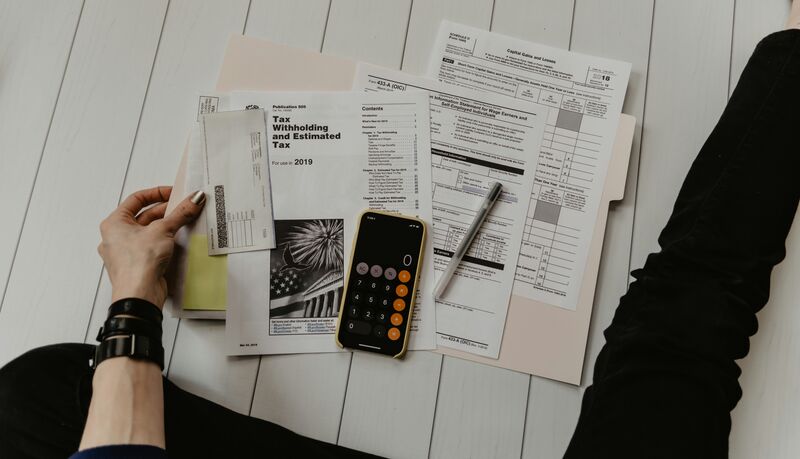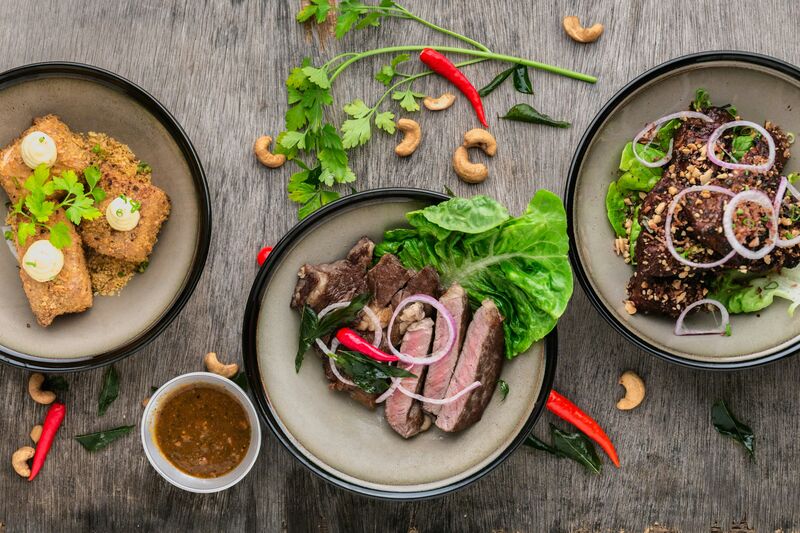Introduction
Australia, the land of kangaroos, stunning beaches, and vibrant cities, is a top destination for expats worldwide. This comprehensive guide will help you navigate the process of moving to Australia, from visa applications to finding your dream job and settling into the Australian way of life.

Visa Programs
- Skilled Migration Visa (Subclass 189): Points-based, no employer sponsorship, permanent residency pathway.
- Employer Sponsored Visa (Subclass 482): Temporary work visa, employer sponsorship, pathway to PR.
- Working Holiday Visa (Subclass 417): For 18-30 year olds, valid 12 months, can be extended.
- Student Visa (Subclass 500): For international students enrolled in a registered course of study in Australia.
- Partner Visa (Subclass 820/801): For partners or spouses of Australian citizens, permanent residents, or eligible New Zealand citizens.
- Business Innovation and Investment Visa (Subclass 188): For people who want to own and manage a business or invest in Australia.
- Temporary Graduate Visa (Subclass 485): For recent graduates from Australian institutions to live, study, and work after finishing their studies.
Pro Tip: Australia's visa system heavily prioritizes skills in shortage occupations and higher education. For working holiday visa holders, completing specified work in regional areas (usually farm work or hospitality in rural locations) is essential for second and third-year extensions. Be prepared for wait times: "fast tracked" visas can take 2-3 months, and standard processing often takes 4-6 months.
Premium Australia Working Holiday Visa Checklist
Planning to apply for an Australia Working Holiday visa? Our comprehensive checklist makes the process simple:
- Complete step-by-step application guide
- All required documentation and health checks
- Latest eligibility requirements and quotas
- Extension options and second/third year pathways
Skilled Visa Points Calculator
*This is a simplified calculator for estimation purposes only. For official assessment, use the official points calculator.
Most Popular Nomad/Expat Cities
- Sydney: Australia's largest city with stunning beaches and global business connections.
- Melbourne: Cultural capital with a thriving arts scene and café culture.
- Gold Coast: Beach lifestyle with 300 days of sunshine.
- Perth: Isolated but beautiful with amazing beaches and weather.
- Brisbane: Sunny, more affordable big city with warm weather and relaxed pace.
Pro Tip: Consider the often-overlooked mid-sized cities like Adelaide, Hobart, or the Gold Coast, which offer better affordability while maintaining high quality of life. Weather varies dramatically across Australia - northern regions (Brisbane, Cairns) are hot and humid year-round with a wet season, while southern cities (Melbourne, Hobart) experience four distinct seasons with much cooler winters. Research the climate carefully, as it significantly impacts lifestyle and living costs like heating/cooling expenses.
Cost of Living
| Expense | Monthly Cost (AUD) |
|---|---|
| Apartment Rent (1BR, city center) | $1,500 - $2,200 |
| Utilities (electricity, heating, water) | $200 - $350 |
| Internet (100 Mbps) | $60 - $90 |
| Mobile Plan | $20 - $50 |
| Groceries | $400 - $600 |
| Transportation (monthly pass) | $120 - $180 |
| Dining Out (meal for two, mid-range) | $60 - $100 |
| Coffee | $4 - $5 |
Pro Tip: Sydney and Melbourne housing costs can be reduced by 30-40% by looking just 30-45 minutes from the CBD via public transport. For groceries, Aldi offers significantly lower prices than Coles or Woolworths. Many Australians use apps like Frugl or Half Price to track supermarket specials. For furniture and household items, check Facebook Marketplace and Gumtree - many expats sell quality items at steep discounts when leaving the country.
Tax System

Australian Taxation Office (ATO)
Pro Tip: The Australian tax year runs from July 1 to June 30, which often catches new arrivals by surprise. If you're on a working holiday visa, be aware you're taxed at a higher rate (15% from the first dollar up to $45,000). For all residents, claiming work-related deductions can significantly reduce your tax bill - track expenses for items like home office equipment, professional subscriptions, union fees, and work-specific clothing or tools. Many expats overpay because they don't claim all eligible deductions.
Job Market and Salaries
- IT/Tech: $80,000 - $150,000 AUD
- Healthcare: $75,000 - $120,000 AUD
- Construction/Trades: $60,000 - $100,000 AUD
- Finance: $75,000 - $150,000 AUD
- Education: $65,000 - $95,000 AUD
Pro Tip: Australia has a strong "who you know" hiring culture, with many positions filled through referrals before being advertised. Invest time in professional networking events and industry meetups. For your resume (CV), adapt to the Australian format which typically runs 2-4 pages longer than American versions and includes more detail about responsibilities. Hiring managers often look for "cultural fit" alongside skills, so highlight your teamwork abilities and adaptability.
Job search sites: Seek, Indeed Australia, LinkedIn Australia, CareerOne
Culture and Lifestyle

The quintessential Australian outdoor lifestyle
- Outdoor lifestyle: Beach culture, sports, and barbecues
- Work-life balance: 38-hour work week standard
- Relaxed social attitude: Casual approach to hierarchy and formality
- Multicultural society
Pro Tip: Australian workplace culture values egalitarianism and informality. Avoid appearing hierarchical or status-conscious as this can create social barriers. The concept of "tall poppy syndrome" means excessive self-promotion is generally frowned upon. Join social sports teams or community groups - Australians often form friendships through shared activities rather than direct socializing. Learning Australian slang and shortening words (afternoon → "arvo", breakfast → "brekkie") helps you integrate faster.
Healthcare
- Medicare: Australia's universal healthcare system provides basic coverage for citizens, permanent residents, and visitors from countries with reciprocal agreements.
- Private Health Insurance: Many Australians supplement Medicare with private insurance for additional coverage (dental, optical, private hospitals).
- Quality of Care: Australia consistently ranks among the world's top healthcare systems for quality and outcomes.
Pro Tip: Medicare doesn't cover dental care, which is expensive in Australia. Many expats visit dentists during trips to Southeast Asia where quality care costs 50-70% less. For prescription medications, ask for generic brands and consider registering for the Pharmaceutical Benefits Scheme (PBS) which subsidizes many medications. If you need a specialist appointment, get a referral from a GP first - attempting to book directly with specialists often results in higher fees and no Medicare rebate.
Entertainment and Activities

Australia is famous for its vibrant festival scene (Credit: Falls Festival by Secret Sounds)
Australia is world-famous for its vibrant music festival scene, offering something for every taste—from massive EDM raves and boutique camping festivals to unique outback gatherings. Whether you love live music, art, or just a great party atmosphere, there's always an event to experience. For a comprehensive list of the best festivals across the country, check out 30 Music Festivals in Australia To Experience Before You Die by Jones Around The World.
Pro Tip: Entertainment in Australia can be expensive, but many locals use "last minute" ticket apps like TodayTix or Lasttix for discounted theater and concert tickets. Most major museums have one free evening per month. For outdoor activities, national parks often have free entry or low-cost annual passes. Facebook community groups for your specific suburb are excellent resources for finding free local events and activities that tourists and new arrivals typically miss.
Tips for New Expats
- Banking: Set up an Australian bank account as soon as possible.
- TFN & Medicare: Apply for a Tax File Number and Medicare card if eligible.
- Phone: Get an Australian SIM card with a local number.
- Transportation: Consider public transport in major cities. In regional areas or sprawling cities (Melbourne), consider an Australian driver's license.
- Social Integration: Join local expat groups, participate in community events.
"Australia is not just a place, it's a feeling of adventure and opportunity."
Conclusion
Moving to Australia as an expat can be an exciting and rewarding experience. With proper planning and research, you can make a smooth transition to life Down Under. Stay flexible, be open to new experiences, and embrace the Australian way of life.
*Note: All prices and information are approximate and subject to change. Always verify current information from official sources.*


